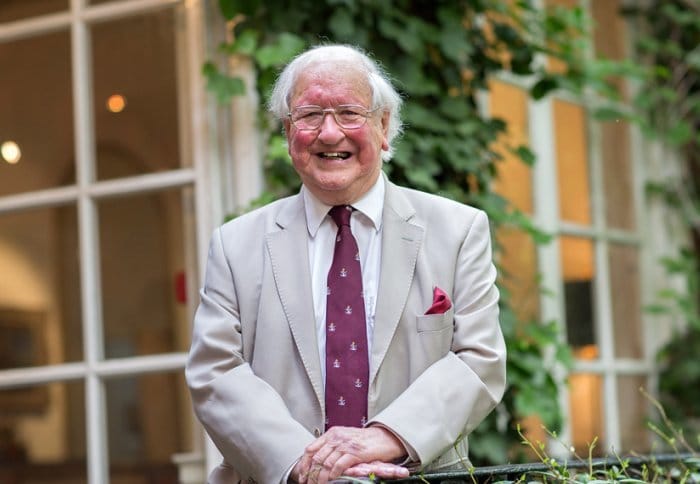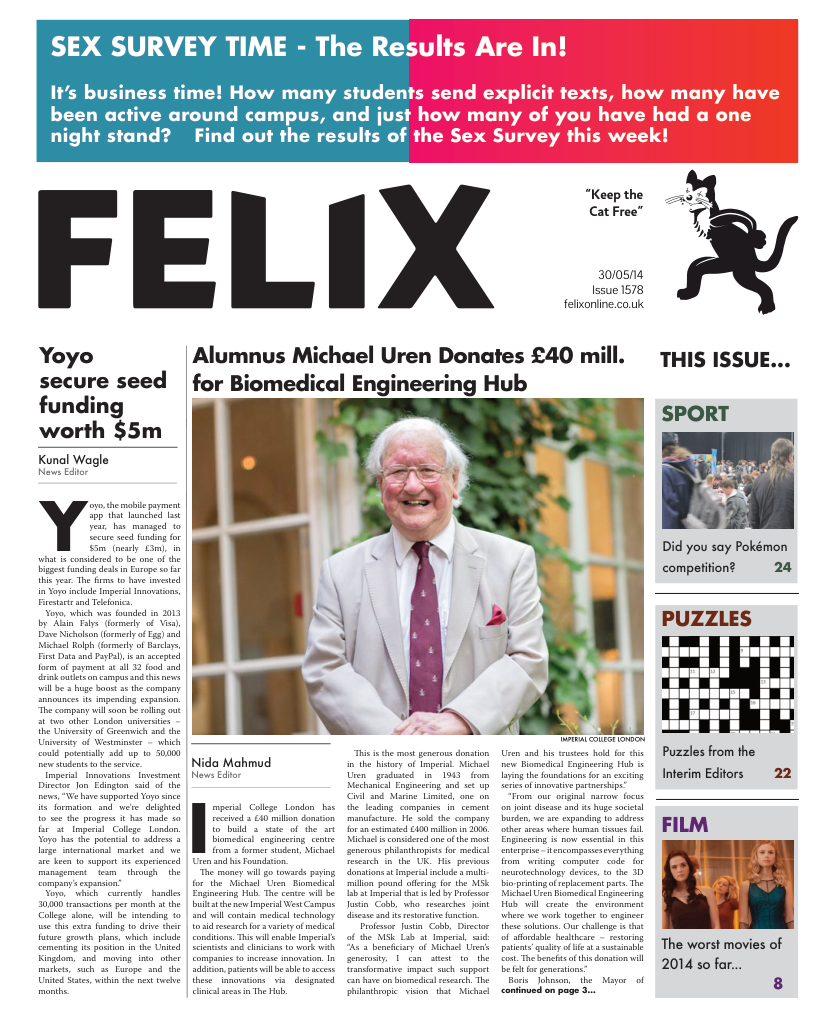Alumnus Michael Uren Donates £40 mill. for Biomedical Engineering Hub
Imperial College London has received a £40 million donation to build a state of the art biomedical engineering centre from a former student, Michael Uren and his Foundation.

Imperial College London has received a £40 million donation to build a state of the art biomedical engineering centre from a former student, Michael Uren and his Foundation.
The money will go towards paying for the Michael Uren Biomedical Engineering Hub. The centre will be built at the new Imperial West Campus and will contain medical technology to aid research for a variety of medical conditions. This will enable Imperial’s scientists and clinicians to work with companies to increase innovation. In addition, patients will be able to access these innovations via designated clinical areas in The Hub.
This is the most generous donation in the history of Imperial. Michael Uren graduated in 1943 from Mechanical Engineering and set up Civil and Marine Limited, one on the leading companies in cement manufacture. He sold the company for an estimated £400 million in 2006. Michael is considered one of the most generous philanthropists for medical research in the UK. His previous donations at Imperial include a multi-million pound offering for the MSk lab at Imperial that is led by Professor Justin Cobb, who researches joint disease and its restorative function.
Professor Justin Cobb, Director of the MSk Lab at Imperial, said: “As a beneficiary of Michael Uren’s generosity, I can attest to the transformative impact such support can have on biomedical research. The philanthropic vision that Michael Uren and his trustees hold for this new Biomedical Engineering Hub is laying the foundations for an exciting series of innovative partnerships.”
“From our original narrow focus on joint disease and its huge societal burden, we are expanding to address other areas where human tissues fail. Engineering is now essential in this enterprise – it encompasses everything from writing computer code for neurotechnology devices, to the 3D bio-printing of replacement parts. The Michael Uren Biomedical Engineering Hub will create the environment where we work together to engineer these solutions. Our challenge is that of affordable healthcare – restoring patients’ quality of life at a sustainable cost. The benefits of this donation will be felt for generations.”
Boris Johnson, the Mayor of London commented: “I am absolutely delighted at this extremely generous donation that will push forward research in an exciting and crucially important area of medical science. Biomedical engineering is improving treatments and quality of life for people affected by a diverse range of medical conditions and this new centre has the potential to benefit millions in the UK and around the world. This donation, coming so soon after the launch of MedCity, demonstrates unquestionably that London and the South East is one of the leading regions in the world for game-changing science.”
Sir Keith O’Nions, Rector of Imperial College, sent an email to staff at the College saying: “The Michael Uren Biomedical Engineering Hub will enable engineers and medics to come together and make new technologies, discoveries and innovations on an unparalleled scale – cementing Imperial and the UK’s position as world-leaders in biomedical engineering.”
Michael said: “What I find so exciting about this project is that here is Imperial building one of the biggest research centres in the world within a few miles of the City of London, which itself has become the biggest financial centre in the world today. By putting the two together, what is quite clear is that the investment world will be watching for, and waiting for, the research and inventions which will create tomorrow’s great companies.”
“Imperial was inspirational when I first joined it as a young engineering student in 1940, when London was under attack every night, and it is inspirational today. May it continue to be so forever.”




